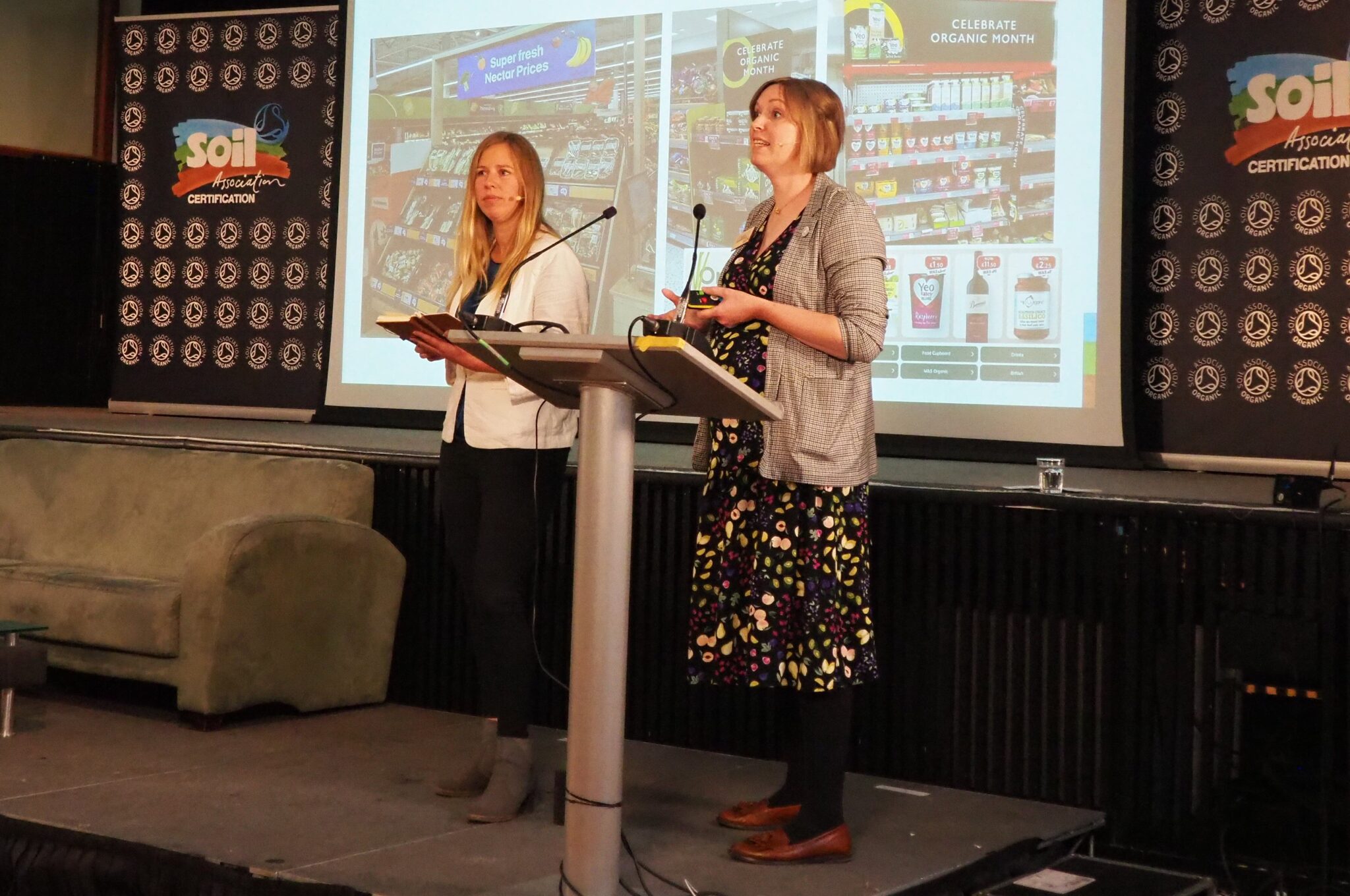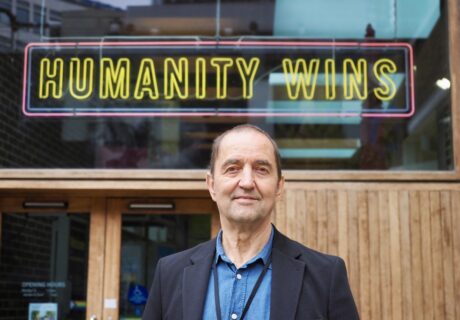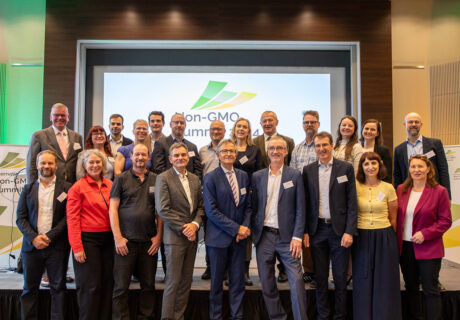This year’s Organic Trade Conference delivered an encouraging message for the sector, highlighting how organic food and drink is now outpacing its non-organic counterparts as the industry recovers from the cost-of-living crisis.
A year on from launching ‘Organic For All’—an ambitious initiative by Soil Association Certification to scale organic production and consumption in the UK—the event showcased the sector’s renewed energy and commitment to driving growth.
During the event, held on Thursday 10th October and supported by Clearspring and Forest Whole Foods, attendees were presented with promising market data that reflected this resurgence. Organic food and drink sales demonstrated strong growth, with sales value increasing by 6.4% in the year up to August, compared to a 5.4% rise for non-organic products.
Soil Association Certification Commercial Director Alex Cullen said: “It has been a fantastic year of progress towards a shared vision for the future of organic. There have been some tough times and challenges remain, but it is great to see the sector bouncing back from the impacts of the cost-of-living crisis as shoppers seek the wellness and sustainability credentials that organic provides
“And with a newly elected government, there’s cause for optimism on how we get more organic into the hands and mouths of people across the country. But it is critical that we learn the clear lessons from Europe on how we can achieve scale for organic food and farming at pace to realise the benefits for health, nature and the environment.”
Shopping sustainably
Mike Watkins, Head of Retailer & Business Insight, NielsenIQ, shared key data insights on the health of the organic market and sales performance in the supermarkets, highlighting the key trends which reveal the motivations of shoppers looking for more healthy and sustainable choices.
Consumers are gradually adapting to the higher cost of living, with only 29% now citing it as their top concern, down from 57% two years ago. Instead, attention is shifting toward areas like health and wellness, which has risen to 28% from just 11% in November 2022. Additionally, 69% of shoppers now actively seek out sustainable or eco-friendly certifications when purchasing food and drink.
Mike said: “Shoppers are increasingly aware of the need to balance the future demands of a growing population, as well as their own health, with a change to their diets. But there is also opportunity to inform and educate about the need for changes in how we produce food and in the supporting the supply chain as part of helping UK food security. Organic is part of this journey.”
Scotland and EU lead the way in waking up to organic as a solution
The conference highlighted a stark contrast between the UK government and the European Union regarding support for organic farming. While the EU has set ambitious targets to increase organic land and recognises organic farming as a key solution for sustainability, the UK lags behind in formal commitments.
Just last month the President of the European Commission, Ursula von der Leyen, was advised that organic farming is the only regulated sustainable system that already delivers environmental and climate protection, in a report that is set to shape the European Commission’s Vision for Agriculture and Food. The report said organic is a prime example of a food production system that reconciles nature protection and farmers’ income.
Guest speaker Michaël Wilde, Founder and Bio Ambassador for The Organic Embassy in the Netherlands, reinforced this message by sharing insights into the rapid growth of the Dutch organic market.
Michaël said: “Our experience has been incredibly positive driven by a shared understanding for the need to address the environmental and health crisis across government and supply chains. Clearly there are still many challenges to overcome, not least the increasing polarisation of the intensive food sector and combined organic and regenerative sectors, but I am optimistic about the future and the lead we are taking in Europe.
Delegates also heard from brand leaders representing innovative organic businesses who shared their stories of commercial success in European markets and beyond including Gusto Organic, Cocofina, PLAYin CHOC, Natracare, Frugi, and English Tea Shop.
And the conference heard about the social impacts and community benefits that organic can provide with inspiring insights from Mossgiel Organic Farm, Bore Place, the Organic Cotton Accelerator, and charity Sustain.





